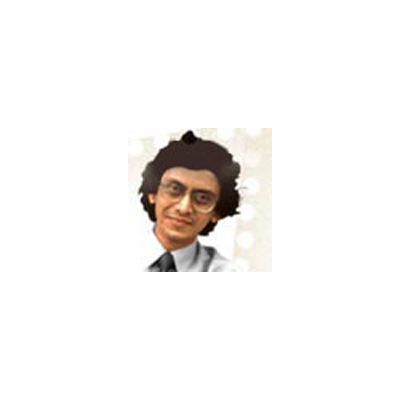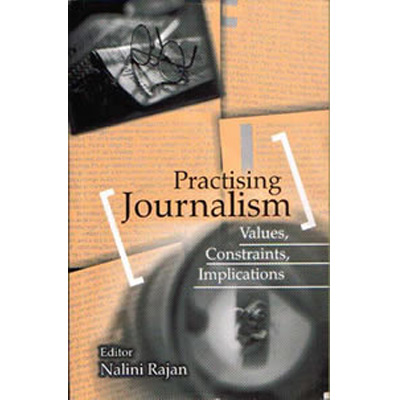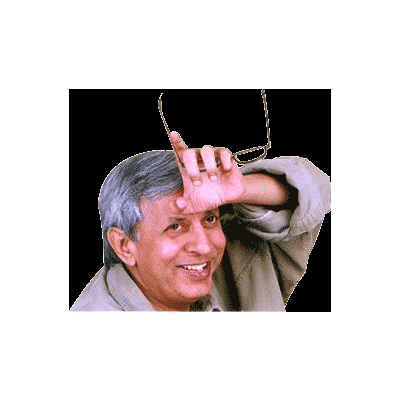Amish Tripathi: The Success Story of a Storyteller
By Jigar Ganatra
The art of storytelling has been in the world for decades. In today?s dynamic world of literature, there are many eminent writers who have mastered this art of storytelling, excelled, made a mark and tasted success. One among them is Amish Tripathi, an IIM graduate, who gave up his fourteen-year-old career in financial services to focus on writing.
His journey as an author started with The Immortals of Meluha, a bestseller, which created a record as the top seller within a week of its launch. And since then, there?s been no looking back for Tripathi. His passion for history, mythology and philosophy clearly reflects in his work.
In a conversation with Indiantelevision.com?s Jigar Ganatra, this ?Eisenhower Fellow? shares his ideas and views as a renowned author and an established entrepreneur.
Excerpts from the conversation:
Tell us about your journey as a writer and choosing ?mythology? as the subject?
As a child, I was never creative. My interest was mostly into sports and I had never thought about writing. My parents and I were always passionate about books and we all have been voracious readers for a long time now. With time, I started to pen down my thoughts, which were appreciated and that is how the journey as a writer began.
As far as mythology is concerned, as a family, we?ve always been proud of our rich history and culture. My grandfather was a pandit, he taught me a lot about the subject. Besides that, my habit of reading has helped a lot. Mythology is an interesting subject and I enjoy sharing my views about it.
Are you trying to modernise and simplify mythology for the audience?
The concept of reinterpreting and modernising mythology has been present for thousands of years. I believe the essence of the story is vital and not the way of storytelling. So, yes, I?m just following the same tradition, culture and the process, thereby modernising and simplifying those stories for the audience today. I?m following the same concept, expressing my thoughts and making it available to my readers.
How important is it to inculcate mythology in today?s education?
I?m not anti-western, but there is a lot we can learn from our ancient literature. I know Indian history and mythology is not extensively taught in the country, and that could be a flaw in the education system. It is strange that in India, we learn about Shakespeare or world literature more than educating ourselves about the rich Indian heritage, be it mythology, science or historical achievements that our ancestors have accomplished. Educating our children and ourselves about our own history is the need of the hour and I think it is time that the education system is redefined and improved.
Tell us more about Amish as an entrepreneur and now a brand.
The skills have come from education and my professional experience. I believe that every writer is an entrepreneur. It has been the literary scene for many years now. For example ? the great author Charles Dickens used to market his literary work.
Books are my product and once I have written them, I can?t change the product. The best way to make it available for the audience is marketing. My team and I work on different strategies and promote the book. I?m glad that my team has great expertise in branding and promotions.
Would you like to see your work adapted as a movie or a digital series?
Yes, absolutely. In fact, I?m happy to announce that all the books from the ?Shiva Trilogy? are being made into a movie by Dharma Productions. I have got offers for the movie adaptation of my first book from the Ram Chandra series, but I?m not ready for that yet.
On the digital front, I believe these are early days and it is a new space for me to venture into. It is going to be a big part of the future and it does seem promising. Further, it is very interesting and there are many perks associated with it. In the years to come and with improving technology, it would have a strong presence, vast reach and better connectivity. I am certain that it will have a strong strategic impact and it is something all of us, from the creative world, will have to keep in mind.
How did you plan to link music and your work?
It was a clearly a marketing move, which happened due to a combination of two factors. Firstly, the credit goes to my management team. I have great advisors whom I have worked with. They give me great ideas and strategies to promote my books. Secondly, I think the budget and the scale, which we set for marketing and promotional activities, allows me to invest in music. We all decided on the idea and loved it, hence it happened. It is produced by a team of experienced musicians and I?m closely associated in the making.
Do you have a library for the next two decades?
I have various project ideas in my mind and all are based on mythology. I want to tell my readers and followers that there are clues for my future work in the Shiva Trilogy. If my readers come back to Shiva trilogy, after reading any of my series, they would find the clues for my next work. An era or a civilisation that lasted for thousands of years is what links all my books and allows me to have such a vast library. This entire mythological universe is very interesting and clearly set in my mind.
Would you want to write books that address social issues?
I love fiction and I believe in conveying a message through storytelling. This art has been followed for many years and also makes it easy and interesting for the readers to follow the message. With regards to social issues, I may write in the future but there?s nothing in the pipeline.
Can you share some interesting reviews that you have received about your books?
I have received a lot of reviews from the books, which have been translated in foreign languages. I have noticed a mixed bunch of readers, both who believe in the mythology and those who don?t. But there have been instances where the readers are amused about the characters and have fallen in love with them, especially Shiva. It is interesting to know their opinion about it. All I can say is that I?m glad that the books and the art are being appreciated globally.
What advice would you give to budding writers?
I believe that the writers today are fortunate as they have the right to speak their mind. We are thankfully in a country where an individual can voice their thought. So, it would be nice to see the upcoming writers share their views, have a firm opinion about the subject and let their work speak.
Amish?s last book, Scion of Ikshvaku was released on 22 June, 2015. He is currently working on his second book from the Ram Chandra series. More information about his work can be found on www.authoramish.com








 My favourite books
My favourite books Apart from this, I have a large collection of books at home but it's not really organised as a proper library. I have a person who delivers Hindi books to me at home. I also get a monthly catalogue to choose from all the new books in the market.
Apart from this, I have a large collection of books at home but it's not really organised as a proper library. I have a person who delivers Hindi books to me at home. I also get a monthly catalogue to choose from all the new books in the market.



